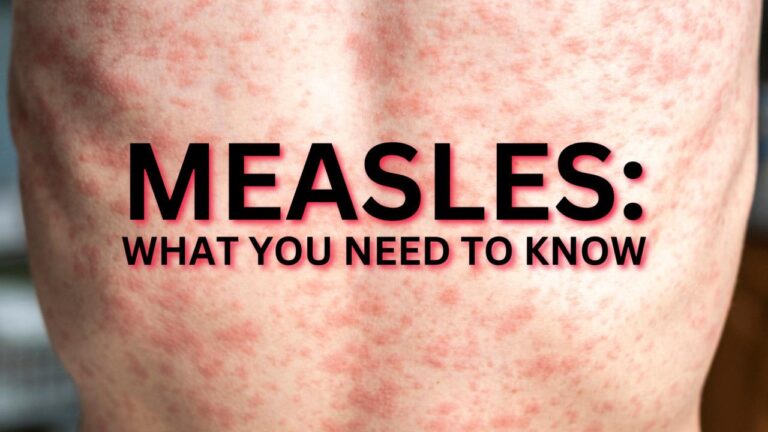A recent outbreak of measles has swept through several rural communities in Alberta, exposing vulnerabilities in areas where vaccine resistance remains high. According to health officials, the highly contagious disease is spreading rapidly among populations with low immunization rates, raising concerns about public health and the challenges of reaching hesitant residents. As authorities work to contain the outbreak, the situation highlights the ongoing consequences of vaccine skepticism in rural Canada.
Measles Outbreak Surges in Rural Alberta Amid Vaccine Hesitancy
Health officials in Alberta are grappling with a rapid increase in reported measles cases predominantly concentrated in rural districts where vaccination rates have historically lagged. The surge underscores the consequences of persistent vaccine hesitancy fueled by misinformation and distrust in public health initiatives. Clinics in affected areas report overwhelming demand for immunizations, with many individuals seeking catch-up vaccines only after local outbreaks spread through schools and community gatherings.
Experts warn that the ongoing outbreak could have been mitigated if immunization coverage had been higher. The current data reveals key factors contributing to the spread:
- Low vaccination uptake: Significant portions of the population remain unvaccinated due to parental concerns and cultural beliefs.
- Delayed response: Slow recognition of early cases delayed containment efforts.
- Close-knit communities: Frequent social interactions accelerated transmission.
| Area | Vaccination Rate (%) | Reported Cases |
|---|---|---|
| Maple Creek District | 62 | 45 |
| Clearwater County | 58 | 39 |
| Fox Creek Area | 55 | 50 |
Health Officials Urge Immediate Immunization Campaigns to Contain Spread
Health authorities are mobilizing swiftly to counter the rapid surge of measles in several rural communities across Alberta, where vaccine hesitancy has led to alarmingly low immunization rates. Officials emphasize that without immediate intervention, the highly contagious virus could overwhelm local healthcare facilities and pose a significant risk to vulnerable populations, especially children and the elderly. The campaign will focus on door-to-door vaccination drives, community education programs, and partnerships with local leaders to rebuild trust in immunization efforts.
Key strategies being deployed include:
- Expanding mobile clinics to reach remote areas
- Collaborating with schools to implement on-site vaccinations
- Launching multilingual awareness campaigns tailored to diverse groups
- Providing real-time tracking of immunization coverage through digital platforms
| Target Group | Vaccination Goal | Timeline |
|---|---|---|
| Children under 5 years | 95% coverage | 4 weeks |
| School-aged children | 90% coverage | 6 weeks |
| Adults in affected zones | 80% coverage | 8 weeks |
Community Leaders Call for Enhanced Education and Access to Vaccinations
Local leaders and health officials are urging immediate action to combat a resurgence of measles in parts of rural Alberta where vaccine uptake remains critically low. Emphasizing the importance of education, they stress that misinformation and mistrust must be addressed through transparent, community-driven initiatives. Town hall meetings, school programs, and mobile health clinics are being organized to spread factual information and facilitate easy access to vaccinations.
- Educational campaigns targeting parents and caregivers with culturally sensitive materials
- Partnerships with local influencers and trusted community members
- Increased funding for mobile vaccination clinics to serve remote populations
| Initiative | Target Area | Start Date | Expected Impact |
|---|---|---|---|
| Mobile Vaccination Clinics | Northern Alberta | July 2024 | Increased vaccine accessibility |
| School Outreach Programs | Rural School Districts | August 2024 | Improved vaccine knowledge |
| Community Trust Workshops | Multiple Regions | September 2024 | Reduced vaccine hesitancy |
Health authorities also highlight that combating the outbreak will require ongoing collaboration across government agencies and local organizations. They call upon residents to participate actively in upcoming events and ensure their families are vaccinated, stressing that community-wide immunity is essential to halting further spread and protecting vulnerable populations.
To Wrap It Up
As measles cases continue to rise in rural Alberta communities with low vaccination rates, public health officials are urging increased outreach and education to curb the outbreak. The situation underscores the ongoing challenges faced in areas resistant to immunization efforts, highlighting the critical need for coordinated responses to prevent further spread. Monitoring and addressing vaccine hesitancy remain essential components in safeguarding public health moving forward.




